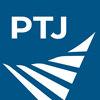对需要手术的晚期心力衰竭患者进行多域复原力评估的可行性:试点研究
IF 3.5
4区 医学
Q1 ORTHOPEDICS
引用次数: 0
摘要
目的 对晚期心力衰竭(HF)患者在接受心脏移植或左心室辅助装置植入等身体应激后的恢复能力,尚未从身体、认知和社会心理等方面进行研究。本试验研究的主要目的是评估对需要手术的晚期心房颤动患者进行多领域复原力评估的可行性。方法 在手术干预前、重症监护出院后、术后 3 个月和 6 个月的基线期完成每个领域的评估。通过完成率、完成评估所需的时间以及评估者的定性反馈来评估可行性。结果 尽管在不同的时间点有不同的完成率,但握力、改良弗里德虚弱表型和蒙特利尔认知评估的完成率都很高。此外,如果对那些在医学上限制身体功能的患者进行控制,短期体能测试、步态速度和 30 秒椅子站立测试的完成率也很高。在 3 个月和 6 个月时,所有身体和认知评估以及大多数社会心理评估都出现了恢复基线状态或改善基线状态的趋势。简易复原力量表问卷的变化很小。结论 这项试点研究表明,对晚期高血压患者进行多领域复原力评估是可行的。未来的研究需要确定有助于预测该人群术后积极疗效的特定评估或患者因素。影响 这项研究对临床实践具有重要意义,可帮助晚期 HF 患者在接受心脏移植或左心室辅助装置评估时在多个领域进行最可行的评估。本文章由计算机程序翻译,如有差异,请以英文原文为准。
Feasibility of a Multidomain Resiliency Assessment in Patients with Advanced Heart Failure Requiring Surgery: A Pilot Study
Objective The resiliency of patients who have advanced heart failure (HF) and undergo a physical stressor such as heart transplantation or left ventricular assist device implantation has yet to be studied in the physical, cognitive, and psychosocial domains. The primary aim of this pilot study was to assess the feasibility of a multidomain resiliency assessment in patients who have advanced HF and require surgery. Methods A battery of assessments in each of the domains was completed at baseline before surgical intervention, after intensive care discharge, and 3 and 6 months after surgery. Feasibility was assessed through completion rates, time required to complete the assessments, and qualitative feedback from assessors. Results Although various completion rates were noted at different time points, high completion rates were seen for grip strength, the modified Fried frailty phenotype, and the Montreal Cognitive Assessment. Additionally, when controlled for patients who were medically restricted from physical function, the Short Physical Performance Battery, gait speed, and the 30-second chair stand test also had high completion rates. A trend toward return to baseline status or an improvement in baseline status was observed in all physical and cognitive assessments and most psychosocial assessments at 3 and 6 months. Minimal change was noted in the Brief Resilience Scale questionnaire. Conclusion This pilot study demonstrates that a multidomain assessment of resiliency is feasible in patients with advanced HF. Future studies are needed to help determine specific assessments or patient factors that would help predict positive postsurgical outcomes in this population. Impact This study has implications for clinical practice on the most feasible assessments in multiple domains for patients who have advanced HF and are being evaluated for heart transplantation or left ventricular assist device.
求助全文
通过发布文献求助,成功后即可免费获取论文全文。
去求助
来源期刊

Physical Therapy
Multiple-
CiteScore
7.10
自引率
0.00%
发文量
187
审稿时长
4-8 weeks
期刊介绍:
Physical Therapy (PTJ) engages and inspires an international readership on topics related to physical therapy. As the leading international journal for research in physical therapy and related fields, PTJ publishes innovative and highly relevant content for both clinicians and scientists and uses a variety of interactive approaches to communicate that content, with the expressed purpose of improving patient care. PTJ"s circulation in 2008 is more than 72,000. Its 2007 impact factor was 2.152. The mean time from submission to first decision is 58 days. Time from acceptance to publication online is less than or equal to 3 months and from acceptance to publication in print is less than or equal to 5 months.
 求助内容:
求助内容: 应助结果提醒方式:
应助结果提醒方式:


